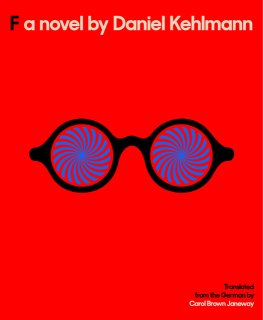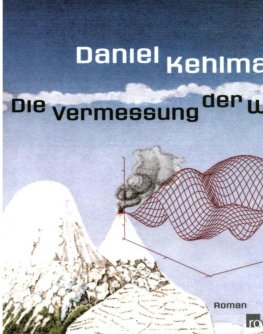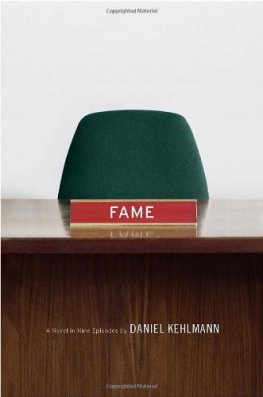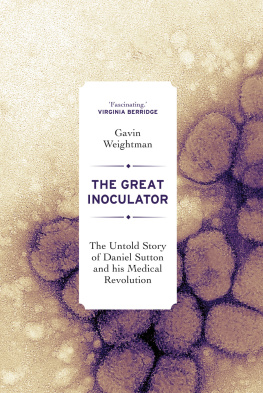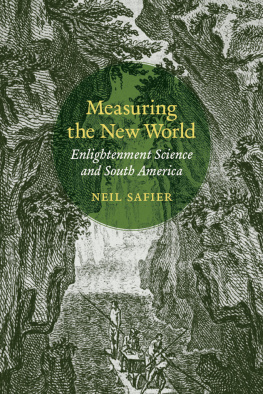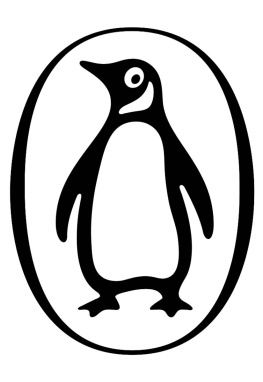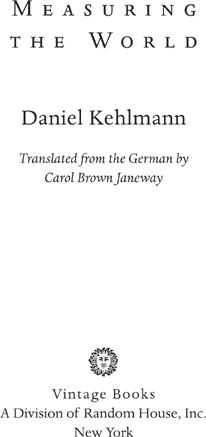Daniel Kehlmann was born in 1975 in Munich, the son of a director and an actress. He attended a Jesuit college in Vienna, traveled widely, and has won several awards for previous novels and short stories, most recently the 2005 Candide Award. His works have been translated into more than twenty languages, and Measuring the World became an instant bestseller in several European countries. Kehlmann lives in Vienna.
T HE J OURNEY
In September 1828, the greatest mathematician in the country left his hometown for the first time in years, to attend the German Scientific Congress in Berlin. Naturally he had no desire to go. He had been declining to accept for months, but Alexander von Humboldt had remained adamant, until in a moment of weakness and the hope that the day would never come, he had said yes.
So now Professor Gauss was hiding in bed. When Minna told him he must get up, the coach was waiting and it was a long journey, he wrapped his arms around the pillow and tried to make his wife disappear by closing his eyes. When he opened them again and Minna was still there, he told her she was a hindrance, and limited, and the misfortune of his old age. When that didn't work either, he pushed back the coverlet and set his feet on the floor.
Bad-temperedly he performed the most minimal ablutions and went downstairs. In the parlor, his son Eugen was waiting with a bag packed. As Gauss caught sight of him, he flew into a rage: he broke a jug that was standing on the windowsill, stamped his foot, and struck out wildly. He wasn't even to be calmed when Eugen to one side of him and Minna to the other laid their hands on his shoulders and swore that he would be well taken care of, he would soon be home again, and everything would be over in no time, just like a bad dream. Only when his ancient mother, disturbed by the noise, emerged from her room to pinch his cheek and ask what had happened to her brave boy did he pull himself together. Without warmth he said goodbye to Minna, and absentmindedly stroked the heads of his daughter and youngest son. Then he allowed himself to be helped into the coach.
The journey was a torture. He called Eugen a failure, took the knobbed stick away from him, and jabbed it full force at his foot. For a time he stared out of the window, a frown on his face, then asked when his daughter was finally going to get married. Why didn't anyone want her, what was the problem?
Eugen pushed back his long hair, kneaded his red cap with both hands, and didn't want to answer.
Out with it, said Gauss.
To be honest, said Eugen, his sister wasn't exactly pretty.
Gauss nodded; the answer seemed a plausible one. He said he wanted a book.
Eugen gave him the one he had just opened: Friedrich Jahn's German Gymnastics. It was one of his favorites.
Gauss tried to read, but seconds later he was already glancing up to complain about the newfangled leather suspension on the coach; it made you feel even sicker than usual. Soon, he explained, machines would be carrying people from town to town at the speed of a shot. Then you'd do the trip from Gttingen to Berlin in half an hour.
Eugen shrugged.
It was both odd and unjust, said Gauss, a real example of the pitiful arbitrariness of existence, that you were born into a particular time and held prisoner there whether you wanted it or not. It gave you an indecent advantage over the past and made you a clown vis--vis the future.
Eugen nodded sleepily.
Even a mind like his own, said Gauss, would have been incapable of achieving anything in early human history or on the banks of the Orinoco, whereas in another two hundred years each and every idiot would be able to make fun of him and invent the most complete nonsense about his character. He thought things over, called Eugen a failure again, and turned his attention to the book. As he read, Eugen in his distress turned his face fixedly to the window, to hide his look of mortification and anger.
German Gymnastics was all about exercise equipment. The author expounded at length on this or that piece of apparatus which he had invented for swinging oneself up or around on. He called one the pommel horse, another the beam, and another the vaulting horse.
The man was out of his mind, said Gauss, opened the window, and threw the book out.
That was his book, cried Eugen.
Quite so, said Gauss, dropped off to sleep, and didn't stir until they reached the stop at the frontier that evening and the horses were being changed.
While the old horses were being unhitched and the new ones harnessed up, they ate potato soup in an inn. The only other guest, a thin man with a long beard and hollow cheeks, inspected them furtively from the next table. Everything pertaining to the body, said Gauss, who to his irritation had been dreaming about gym apparatus, was the true source of all humiliation. He had always considered it a sign of God's malicious sense of humor that a spirit such as his should be trapped in a sickly body while a common or garden-variety creature like Eugen was, to all intents and purposes, never ill.
He had had a severe attack of smallpox when he was a child, said Eugen. He had almost died. You could still see the scars!
True, said Gauss, he'd forgotten. He pointed to the post horses outside the window. It was actually quite funny that the rich needed twice as much time to make a journey as the poor. If you used post horses, you could change them after every section. If you had your own, you had to wait until they were fresh again.
So what, said Eugen.
Naturally, said Gauss, if you didn't think that much, this would seem obvious. As would the fact that young men carry sticks, and old men don't.
Students carry a knobbed stick, said Eugen. It had always been that way and always would be.
Probably, said Gauss, and smiled.
They spooned up their soup in silence until the gendarme from the frontier post came in to ask for their passports. Eugen gave him his permit: a certificate from the Court which said that although he was a student he was harmless and was permitted to set foot on Prussian soil if accompanied by his father. The gendarme looked at him suspiciously, inspected the pass, nodded, and turned to Gauss. Gauss had nothing.


